Studio 360 2008.10.31 – Music, Memory and My Mom
In the Summer of 2008, I decided to finally put together a piece about my mom and her singing. In 2003, she was struck by a massive stroke, which took out her language. My mom’s loss of language rocked us all, especially because she was an acutely verbal person all her life, acing us in Scrabble and racing through the New York Times Sunday crosswords. After six month of total silence, she started to sing. And sing she did. She remembered melodies of her favorite divas – Edith Piaf, Billie Holiday – and could sing along on just about anything. Before her stroke, I would characterize my mom as a hesitant singer. Now, she sang with confidence and bravado, accessing a corner of her brain that was intact and could access words through music.
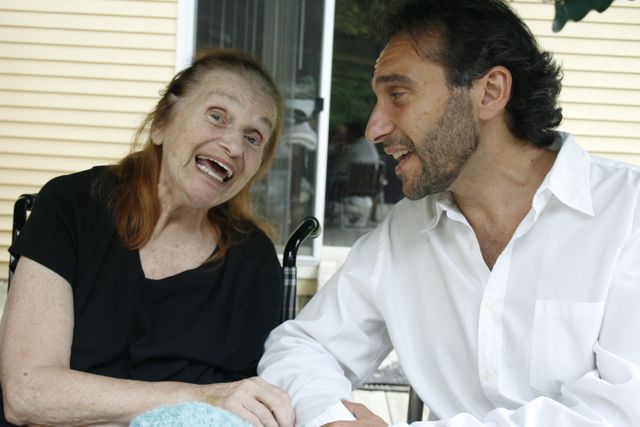
Right after I started to create this piece, my mom’s health plummeted. I tried to record her, but she was too weak to sing. I gave up on the piece. Then, rummaging around in my files one day, I discovered a cache of recordings I had made of the two of us singing that I had completely forgotten about. I forged on, and created this piece. I interviewed my sister Gabrielle through the public radio station in her hometown in Chico, CA. I got in touch with Daniel Levitin, the neuroscientist and musician, to get some of his insights. Before it aired, my mom and I listened to it together – and she said, in her stroke-affected drawl – “Good. Very good.”
My mom passed away on December 8, 2008, 4 days after her 80th birthday. As I drove by myself to the funeral home in Kingston, NY to pick out an urn for her ashes, I noticed a call had come in on my cell phone. I pulled over to the shoulder to check the message – our piece had been selected for a program called “Best of Public Radio 2008.” I looked up and gestured to my mom, and we smiled at each other across that great divide.

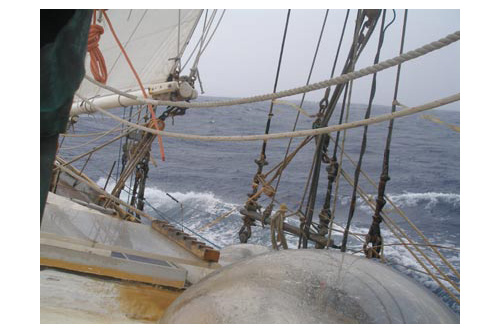
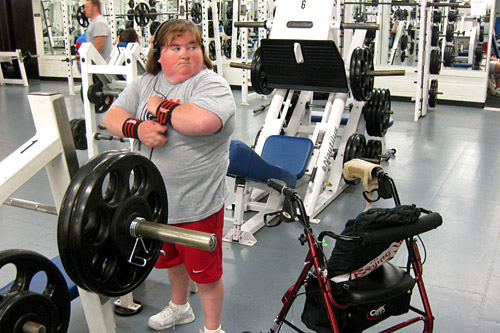
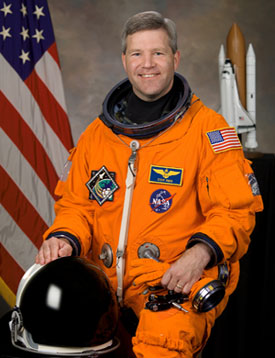 Every morning on the Space Shuttle, a song is the first thing the astronauts hear. It is played by NASA Mission Control in Houston to rouse the astronauts from sleep. The songs are chosen for the astronauts by their friends and family, and played on days when they have a special job to do – like take a space walk or pilot a rendezvous with the International Space Station. In the next installment of our “Listening In” series, I checked in with some Shuttle astronauts (including Commander Steve Frick, pictured) to find out what they like to wake up to when they’re orbiting the Earth.
Every morning on the Space Shuttle, a song is the first thing the astronauts hear. It is played by NASA Mission Control in Houston to rouse the astronauts from sleep. The songs are chosen for the astronauts by their friends and family, and played on days when they have a special job to do – like take a space walk or pilot a rendezvous with the International Space Station. In the next installment of our “Listening In” series, I checked in with some Shuttle astronauts (including Commander Steve Frick, pictured) to find out what they like to wake up to when they’re orbiting the Earth.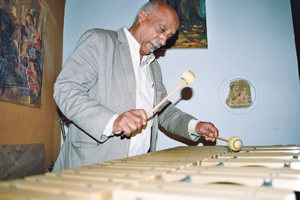 In this piece, we meet Mulatu Astatke, the father of Ethiopian jazz. A pioneering ‘global citizen,’ Astatke became in 1959 the first African to ever attend the famous Berkelee College of Music in Boston. He played with Duke Ellington in the 70s and has enjoyed a resurgence of popularity in the US since Jim Jarmusch featured his music in the soundtrack to the film, “Broken Flowers.” Astatke is famous in Ethiopia for modifying the traditional instrument, the krar, so it can play jazz scales. American bandleader Russ Gershon calls Astatke “a conduit,” who has brought modernism and jazz to Ethiopia while bringing Ethiopia’s extremely diverse tribal culture to the world stage. As part of his constant ebb and flow between the US and Addis, Astatke is now at Harvard for the year, where we talk with him about specific contributions he maintains Ethiopian culture has made to jazz as a whole.
In this piece, we meet Mulatu Astatke, the father of Ethiopian jazz. A pioneering ‘global citizen,’ Astatke became in 1959 the first African to ever attend the famous Berkelee College of Music in Boston. He played with Duke Ellington in the 70s and has enjoyed a resurgence of popularity in the US since Jim Jarmusch featured his music in the soundtrack to the film, “Broken Flowers.” Astatke is famous in Ethiopia for modifying the traditional instrument, the krar, so it can play jazz scales. American bandleader Russ Gershon calls Astatke “a conduit,” who has brought modernism and jazz to Ethiopia while bringing Ethiopia’s extremely diverse tribal culture to the world stage. As part of his constant ebb and flow between the US and Addis, Astatke is now at Harvard for the year, where we talk with him about specific contributions he maintains Ethiopian culture has made to jazz as a whole.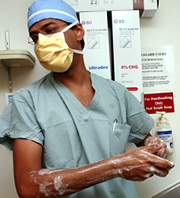
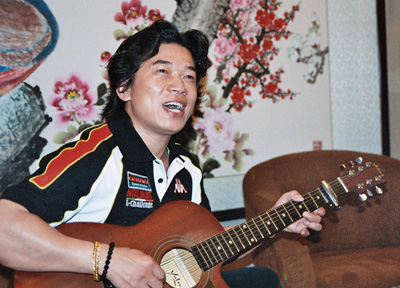
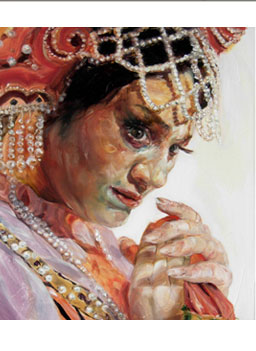
 Music is a phenomenal way to control your environment – to make a room “yours”. More and more expectant mothers and fathers who want to make the delivery room feel more like home are bringing their music with them. Birthing clinics are starting to feature iPod docks as standard equipment, and parents come in with their “giving birth” playlists ready to plug in.
Music is a phenomenal way to control your environment – to make a room “yours”. More and more expectant mothers and fathers who want to make the delivery room feel more like home are bringing their music with them. Birthing clinics are starting to feature iPod docks as standard equipment, and parents come in with their “giving birth” playlists ready to plug in.